
2020 Impact Report Connected to Community
What a difference a year makes.
When we kicked off 2020 more than a year ago, we were brimming with hope and excitement for the new decade. We were confident in our future and forming plans for all that we’d accomplish. You can even see it in what we wrote at the time, penning columns like “Can I interest you in gathering in 2020?” or “New decade… new perspective!”
None of us knew all the lessons that the past year would teach us.
Through all the surprises, turbulence and challenges of the past year, we never lost sight of what keeps us grounded. The North Carolina Community Foundation continues to be deeply rooted in our commitment and connection to community.
Not only was that the vision of our founder, Lewis R. Holding, but it was the cause championed by two members of our board who gave many years of service to this organization, Kel Landis and Rodney (Rod) Earl Martin, both of whom passed away during the last year. Neither man ever lost sight of the importance of our mission.
Our hearts were shattered when we suddenly lost Rod in March of 2021, just as his term as board chair was winding down and we were due to celebrate his years of service. We invite you to read more about his life of generosity, service, leadership and all that he did for philanthropy and North Carolina. Rod saw us through this very unexpected year. This report and the impact it represents would not be the same without the devotion he had for this foundation.
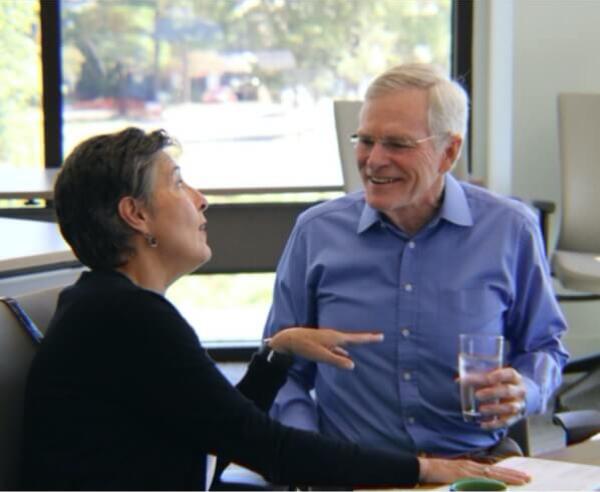
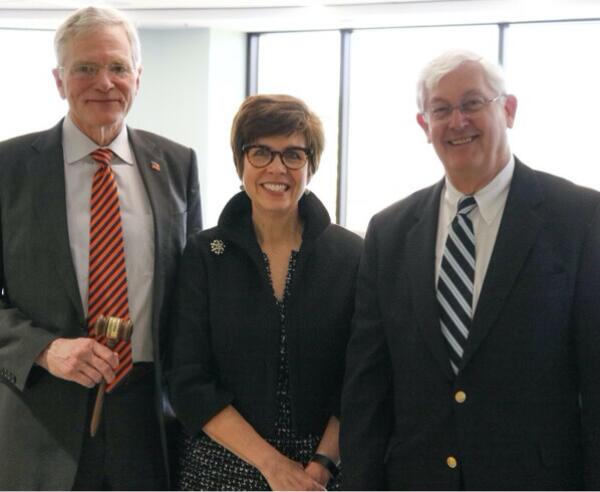
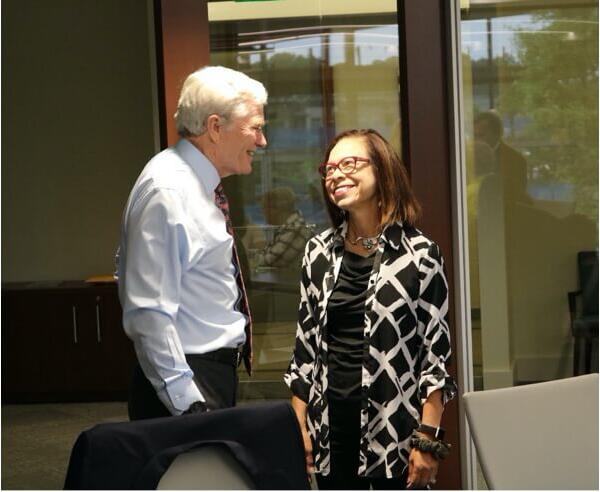
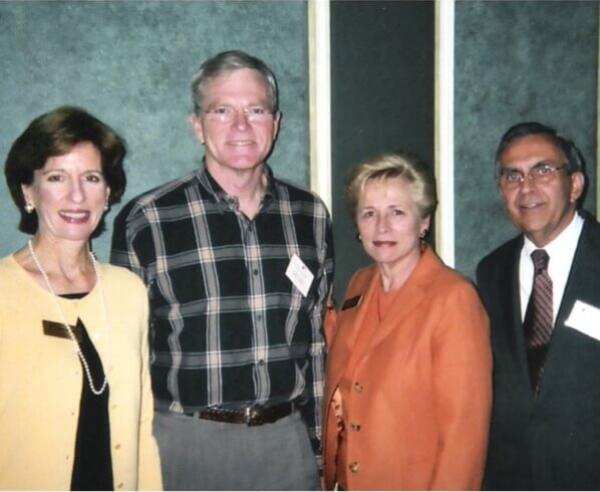
Last year was a challenge for so many. We lost two good friends and tremendous North Carolina leaders on our board. Despite this challenging time, this foundation is strong and I'm honored to lead an organization that is well positioned with generous fundholders and a dynamic statewide network.
Steve Wangerin, Board Chair

Connecting in a Disconnected Time
The start of 2020 marked the implementation of the Foundation’s new model for service delivery. Building upon more than a decade of serving our statewide network through eight regions each staffed by a local associate, we shifted our local staff to teams of four in the west, central and eastern regions of the state, with each staff person focused on one function and group of stakeholders:
- Community leadership officers serve our statewide affiliate network,
- Program officers serve our nonprofit partners,
- Donor engagement officers serve our fundholders, and
- Development officers serve our prospective fundholders and professional advisors.
These teams, all living and working in the communities they serve, were tasked with tackling their new roles without being able to meet in person. How would we enhance and progress community relationships at a time when we could not meet face to face?
Everyone rose to the occasion. Our affiliate boards shifted their meetings and activities to be held virtually, while our community leadership team pivoted in-person regional forums to digital gatherings. In September, we held our first Virtually Together series, where local leaders from across our statewide affiliate network gathered to discuss issues facing our communities. While the pandemic may have prevented our affiliate boards from being together in person, virtual gatherings helped these leaders gather seeds to be planted at home.
“Seeing my fellow affiliate leaders from across the state was energizing. Virtually Together built our connections and reminded me that I’m not alone in this work, especially during a uniquely challenging time. I greatly enjoyed networking with fellow affiliate board members and hearing what’s happening communities across the state.”
Dr. Oliver Johnson, Johnston County Community Foundation
Our program team also found new ways to connect. While building our new model for engaging nonprofit partners and launching the North Carolina Healing Communities Fund, our program officers held a series of listening sessions virtually. These valuable opportunities allowed our team to hear directly from nonprofit leaders about the needs being served by our grants. We left better for the insight and wisdom shared.
“I was grateful to participate in a space where funders were listening to the realities of the communities on the ground. Grassroot organizations were suddenly faced with the challenge of responding to the crisis that resulted from the pandemic. We could not do it by ourselves.”
Lariza Garzón, Executive Director, Episcopal Farmworker Ministry. Listening session participant
Our donor engagement team jumped headfirst into their new roles, serving our fundholders as they sought to make a swift and strong response to the challenges presented in 2020. As communities navigated the changing landscape of the year and nonprofits grappled with fundraising and service demands, our fundholders and donors were more critical than ever to ensuring local nonprofits across the state were able to continue their work.
“I shared my personal giving objectives and was offered a list of interesting and well qualified agencies. I appreciated the help to join my interests with current needs for the public good and I intend to take advantage of this service in the future.”
Anonymous Donor Advised Fundholder

Responding to the Global Pandemic
The generous fundholders who make up the North Carolina Community Foundation heard the call from our communities impacted by the COVID-19 pandemic, and they answered.
In 2020, NCCF granted more than $33.5 million to nonprofit organizations, an increase of 50% over 2019.
Of those grants, more than $5 million were issued directly in response to the COVID-19 pandemic. Millions of those grant dollars came from donor advised funds, in addition to significant focus from the unrestricted funds of our statewide affiliate network.
Additionally, 2020 saw more than $1 million awarded in direct scholarship aid to students, in a year filled with virtual classrooms, online homework and so much unease for our young people.
2020 By the Numbers
$33.5M in grants that were deployed directly into communities
50% increase in year-to-year grants awarded
$5M in grants issued directly in response to the COVID-19 pandemic
$1M awarded in direct scholarship aid to students
One example of strategic grantmaking in the face of the pandemic was the more than $17,000 awarded by the Women’s Fund of North Carolina to nonprofit organizations across the state providing domestic violence services and programs for women in direct response to surging needs because of the COVID-19 pandemic. You can read more about those grants here.
“Survivors are facing one of the toughest challenges of their lives with lost wages and many new challenges. This award will be so helpful in providing them with monetary relief in the form of rent assistance, groceries, mental health services and childcare expenses.”
Sangeetha Menon, Former Executive Director, Kiran, Inc., a grantee of the Women's Fund of NC
The Jamie Kirk Hahn Fund was quick to respond to community needs in 2020. "When COVID-19 hit, we knew the community members who were in the most vulnerable position would face the greatest impact if the pandemic lingered,” said Nation Hahn. “We feared the same held true for workers across the hospitality industry when their doors were shuttered due to the need to contain the pandemic."
The Fund made critical grants to respond to community needs. “The Jamie Kirk Hahn Fund has tried to utilize our funds to spark other investments, so we decided to respond to these twin issues through challenge grants,” said Nation Hahn. “We were thrilled to see the community respond — and we are even more thrilled to see individuals, businesses and nonprofits continue to step up on behalf of our entire community as the need to respond persists."
In the fall of 2020, the Foundation further responded to the pandemic through the creation of the NC Healing Communities Fund.
The Fund provides critical resources for nonprofit organizations in North Carolina that have been impacted severely by COVID‐19 through revenue loss and increased demand. The Fund focuses on supporting nonprofits in marginalized communities that have been disproportionately affected by the virus and its economic impacts and have been underserved by other sources of financial assistance, specifically communities of lower wealth, communities of color, mostly rural communities and where English may not be the primary language.
The Fund has received significant financial support from statewide and regional institutions such as the State Employees' Credit Union Foundation, Duke Endowment, Kate B. Reynolds Charitable Trust, First Citizens Bank, Jonas Foundation, Barnhill Foundation, Novartis Foundation, Anonymous Trust and Fidelity Bank.
One NCCF donor advised fundholder who supported the NC Healing Communities Fund through the Jonas Foundation shared his motivation to support the Fund. “Learning more about the NC Healing Communities Fund gave me a better understanding of the nonprofits that might be impacted by the consequences of COVID-19,” A. G. Jonas said. “This fund definitely deserved support.”
“The SECU Foundation supporting the North Carolina Community Foundation’s NC Healing Communities Fund is just one more way our members are helping our state’s good people find their way through this unprecedented pandemic which has caused so much hardship and pain. With NCCF’s leadership and expertise, we can leverage resources to help smaller nonprofits in underserved and underfunded communities.”
Jo Anne Sanford, SECU Foundation board chair

Advancing Equity and Justice
We remain steadfast in our commitment to partnering with philanthropists to leverage endowments and grantmaking to advance equity and justice in our communities.
The Foundation was honored to welcome the Tip the Scales NC Fund, an endowment created by a group friends compelled to support social justice and anti-racist nonprofit programs. The endowment supports organizations in North Carolina that combat racial and social inequities in the classroom, workforce, community, justice system and beyond. You can read more about this fund here.
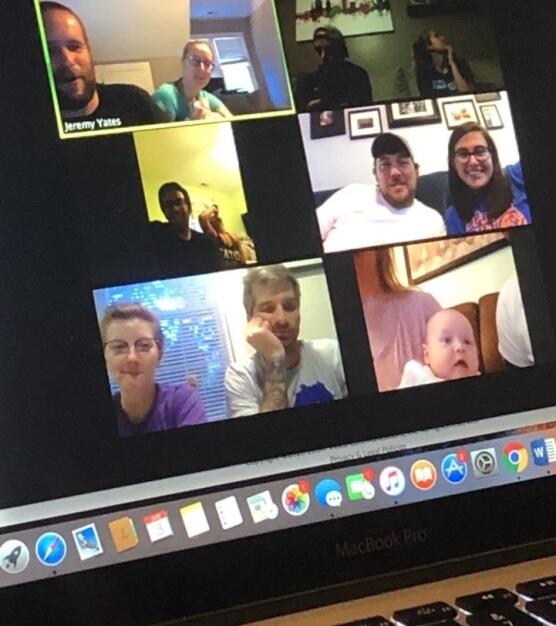
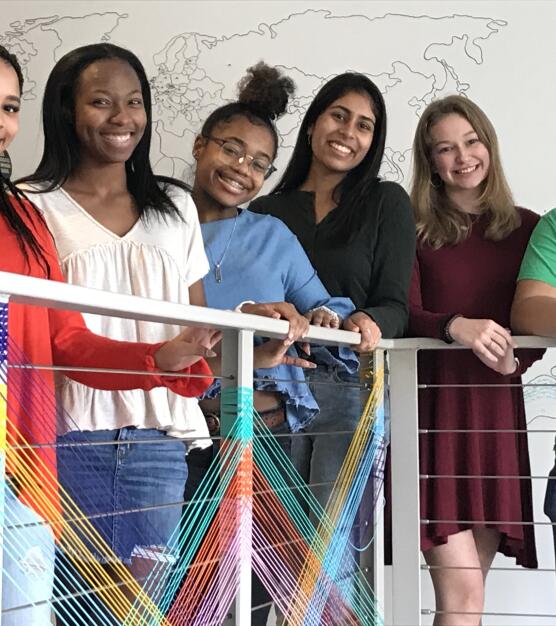
For another fund, what began as a high school class project evolved into a commitment to recognize truths about the history of North Carolina lynching. Raleigh Charter High School’s Freedom Struggle Committee established a fund to create a monument to North Carolina victims of lynching, with the goal to develop permanent public acknowledgement to the many victims of lynching in the state. You can read more these students and their efforts to lead our community into a more actively anti-racist future here.
We were also proud to more deeply weave an emphasis on equity and justice into our NCCF funds in 2020. In addition to the fundamental focus on under-resourced communities present within the foundation of the NC Healing Communities Fund, we furthered this commitment through our disaster recovery work.
We were deeply honored to create a $250,000 funding opportunity through the North Carolina Inclusive Disaster Recovery Network to support long-term disaster recovery through nonprofit organizations that are led by or focus long-term recovery efforts on minority communities, people of color and other underserved populations in the area. These grant decisions were made by the members of the NCIDR, not NCCF staff or board members, positioning the funding to be awarded through an entirely participatory model where funding decisions are made by members of the communities being funded. You can read more about our support for an equitable model of hurricane response here.
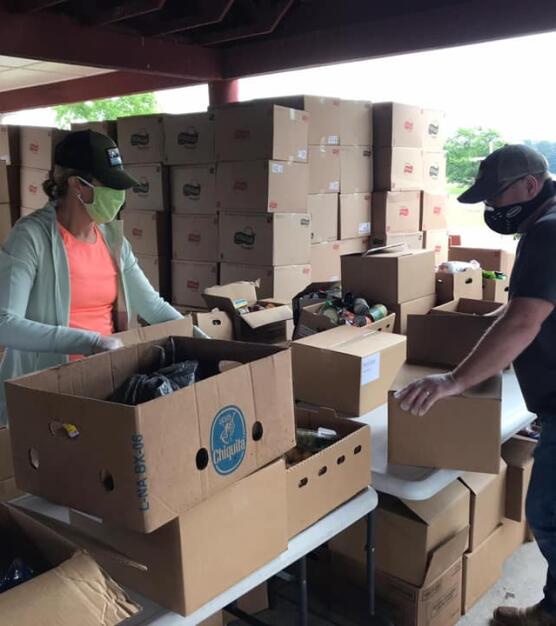
New Funds
Although 2020 was a year with many challenges, we were encouraged and inspired by the donors who responded through philanthropy.
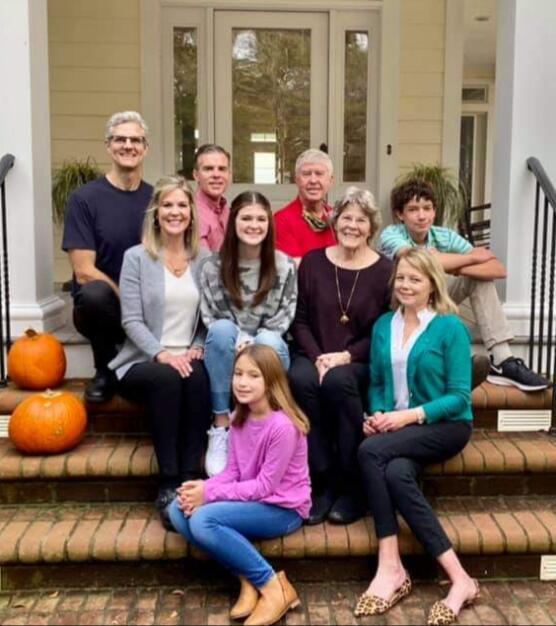
Several new funds were founded by board members of one of our local affiliate community foundations: the Segal Family Endowment was started by Jonathan Segal, chair of the Craven County Community Foundation; the Ford Family Charitable Fund was started by Dr. Christian Ford, chair of the Chowan Community Funds Foundation), and the Weeks Family Fund was started by Katie Weeks, former chair of Wake County Community Foundation. Involvement often spurs action, and we are honored to partner with these community leaders.
Family philanthropy continues to be a priority for many donors. The Webster-Lyerly Endowment for Coastal Resource Protection was started by Ginger Lyerly Webster, a member of our affiliate board and women’s giving circle serving Currituck and Dare counties. Through this fund, Ginger hopes to support coastal resource protection and public health in North Carolina’s coastal areas, and will engage her husband, sister, son and grandchildren in grantmaking decisions.
“My parents were always involved in philanthropy and giving in the local community. When I joined the Chowan Community Funds Foundation and started our family fund, we saw it as an avenue to address needs and plan for a future with our kids being involved in the fund. Eventually, they'll be the ones that manage the fund and the grants. For now, we partner with the local board to look at needs and meet unmet community needs. It's something that we're sharing with the whole family.”
The Ford Family
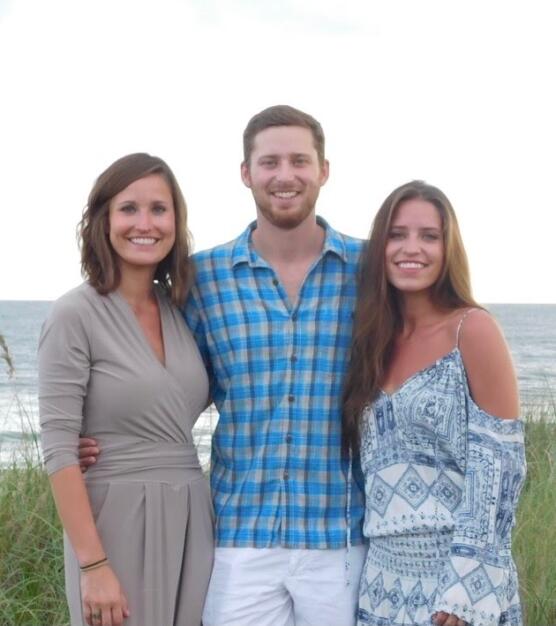
Siblings Cole and Caroline Jordan and Chris Andrews joined together to start The Jordan Andrews Fund, inspired by their grandparents, former Lt. Governor Bob Jordan and Sarah Jordan.
“Our family's inspiration to form The Jordan Andrews Fund was to honor our grandparents, former Lt. Governor Bob Jordan and Sarah Jordan, by coming together as siblings and identifying how we could continue the family culture of giving that they fostered. Pops had the best interests for North Carolinians and the state on his mind every day of his political and professional life. We hope to carry on that stewardship with The Jordan Andrews Fund. Therefore, guidance from a North Carolina foundation with experience and relationships in the state made the most sense for our objectives.”
The Jordan Andrews Family
Supporting our rural nonprofits continues to be the cornerstone of our philanthropy. In Harnett County, affiliate board member and fundholder Bobby Carr founded the Dunn Area History Museum Inc. Endowment to support the local museum, which showcases thousands of old photos, antiques, other memorabilia from Dunn. Other new funds like the TownStage Foundation Endowment, which supports downtown Troy’s TownStage amphitheater, and the Darlene Grace Streater Memorial Endowment, which supports professional development for Anson County public school teachers, showcase this commitment. Endowments help our beloved rural communities ensure sustainability in the face of volatility and ensure mission can carry forward for generations to come.
Scholarships continue to be a specialty of the Foundation. The Don and Audrey Bentley Scholarship Fund was established through a generous legacy gift from the Audrey L. Bentley Trust following her death in March 2019. This endowment will award scholarships to Watauga High School students exhibiting academic excellence, leadership, personal effort and good citizenship.
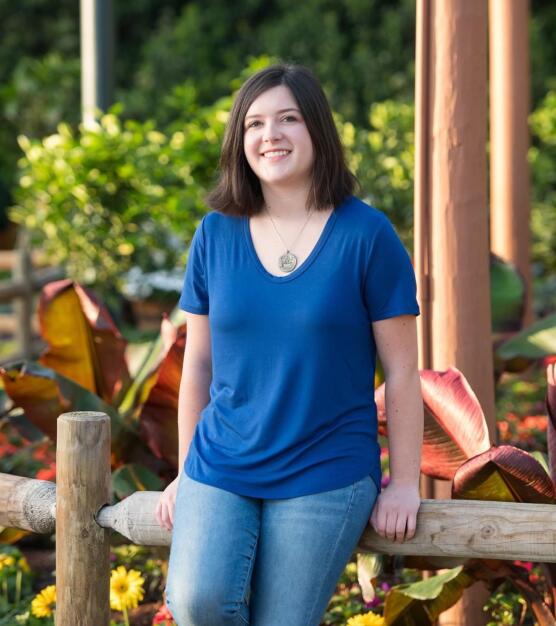
Statewide endowments continue to match our impact across North Carolina. We welcomed the Federation of North Carolina Historical Societies Endowment, Blue Cross NC Community Investment Gift Fund, Carolina Public Press In-Depth and Investigative Journalism Endowment, Friends of the Archives Endowment, and the Election Administrative Assistance Fund.
"Blue Cross NC is committed to improving the health and wellbeing of our customers and communities in all 100 North Carolina counties, and that includes our rural areas. We are proud to work with NCCF and support its reach to improve access to food and other critical needs in rural communities across the state, as well as aid in their recovery from the impacts of the COVID-19 pandemic."
Cheryl Parquet, Director of Community Engagement and Marketing Activation at Blue Cross NC
We were especially proud to see that as Prevent Child Abuse North Carolina celebrated its 40-year anniversary, one of the organization’s founders, Dr. Ronald Keeney, spearheaded the establishment of a new endowment to honor the many contributions PCANC has made and will continue to make in the lives of children across North Carolina. Dr. Keeney was a PCANC founder and leader who wanted to ensure sustainability for a cause very dear to his heart. The Ronald E. Keeney MD Healthy Family Fund for Prevent Child Abuse North Carolina was first announced to more than 400 people at PCANC’s statewide conference last year.
Impact Report - New Funds
NCCF welcomed more than 50 new funds across the state in 2020. Explore funds in a community close to your heart on our interactive map.
Explore New Funds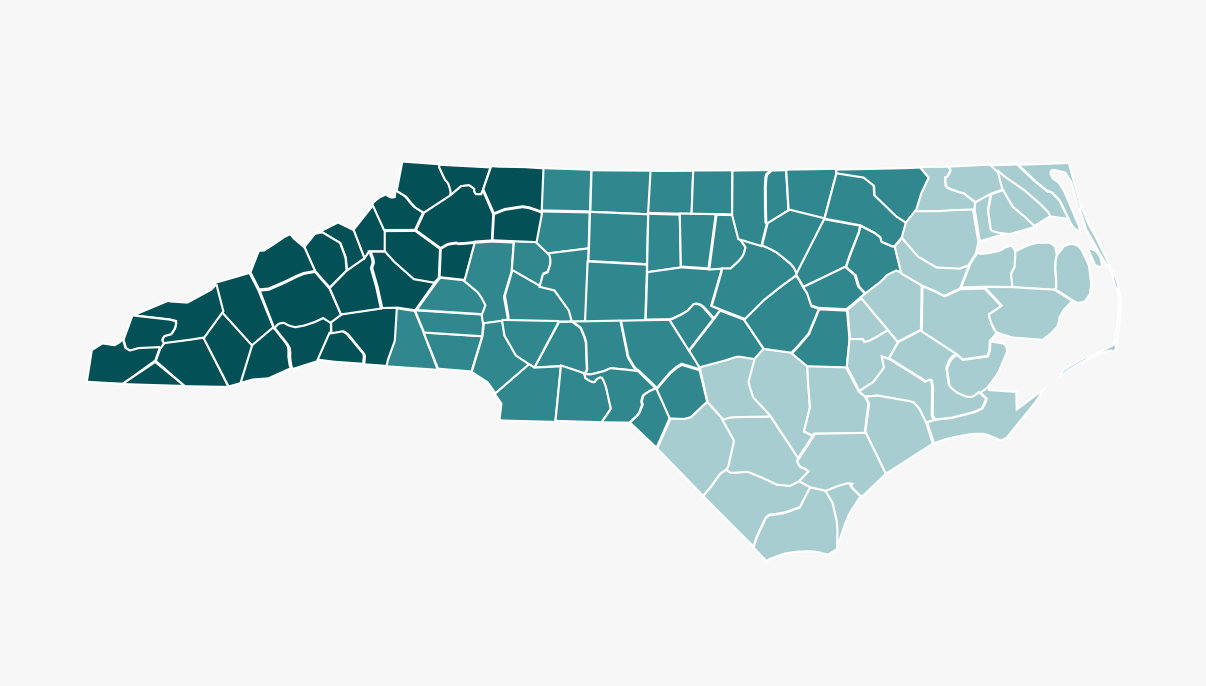
Growth
The North Carolina Community Foundation continues to grow and maintains a solid financial footing. Our full financial information can be reviewed here.
We are proud to report that as of our last audit for fiscal year 2019-2020, we hold more than $290 million in assets and have awarded more than $184 million in grants since our founding in 1988.
“I am honored to continue to be a friend of the North Carolina Community Foundation. I am proud to recommend an organization with a strong financial footing, statewide network, and deep connection to community, especially rural North Carolina. The past year was challenging for so many; it is my belief that the NCCF is a bright light in our state for North Carolinians.”
James W. Narron, Narron Wenzel P.A
